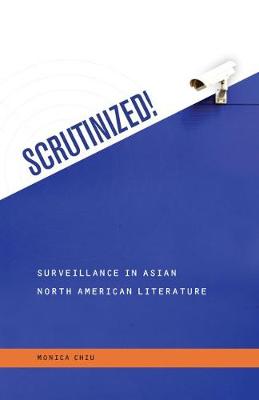Intersections: Asian and Pacific American Transcultural Studies
1 total work
Chang-rae Lee's Native Speaker, Kerri Sakamoto's The Electrical Field, Don Lee's Country of Origin, Mohsin Hamid's The Reluctant Fundamentalist, Susan Choi's A Person of Interest. These and a host of other Asian North American detection and mystery titles were published between 1995 and 2010. Together they reference more than a decade of Asian North America monitoring that includes internment, campaign financing, espionage, and post-9/11 surveillance. However, these works are less concerned with solving crimes than with creating literary responses to the subtle but persistent surveillance of raced subjects.
Monica Chiu reveals how Asian North American novels' fascination with mystery, detection, spying, and surveillance is a literary response to anxieties over race. According to Chiu, this allegiance to a genre that takes interruptions to social norms as its foundation speaks to a state of unease at a time of racial scrutiny.
Scrutinized! is broadly about oversight and insight. The race policing of the past has been subsumed under post-racism-an oversight (in the popular nomenclature of race blindness) that is still, ironically, based on a persistent visual construction of race. Readers first revisit Oriental visions, or Asian stereotypes, and then encounter official documentation on major events, such as the Japanese American and Japanese Canadian internment. The former visions, which endure, and the latter documents, diplomatically forgotten, shape how Asian subjects were and are scrutinized and to what effect.
Monica Chiu reveals how Asian North American novels' fascination with mystery, detection, spying, and surveillance is a literary response to anxieties over race. According to Chiu, this allegiance to a genre that takes interruptions to social norms as its foundation speaks to a state of unease at a time of racial scrutiny.
Scrutinized! is broadly about oversight and insight. The race policing of the past has been subsumed under post-racism-an oversight (in the popular nomenclature of race blindness) that is still, ironically, based on a persistent visual construction of race. Readers first revisit Oriental visions, or Asian stereotypes, and then encounter official documentation on major events, such as the Japanese American and Japanese Canadian internment. The former visions, which endure, and the latter documents, diplomatically forgotten, shape how Asian subjects were and are scrutinized and to what effect.
